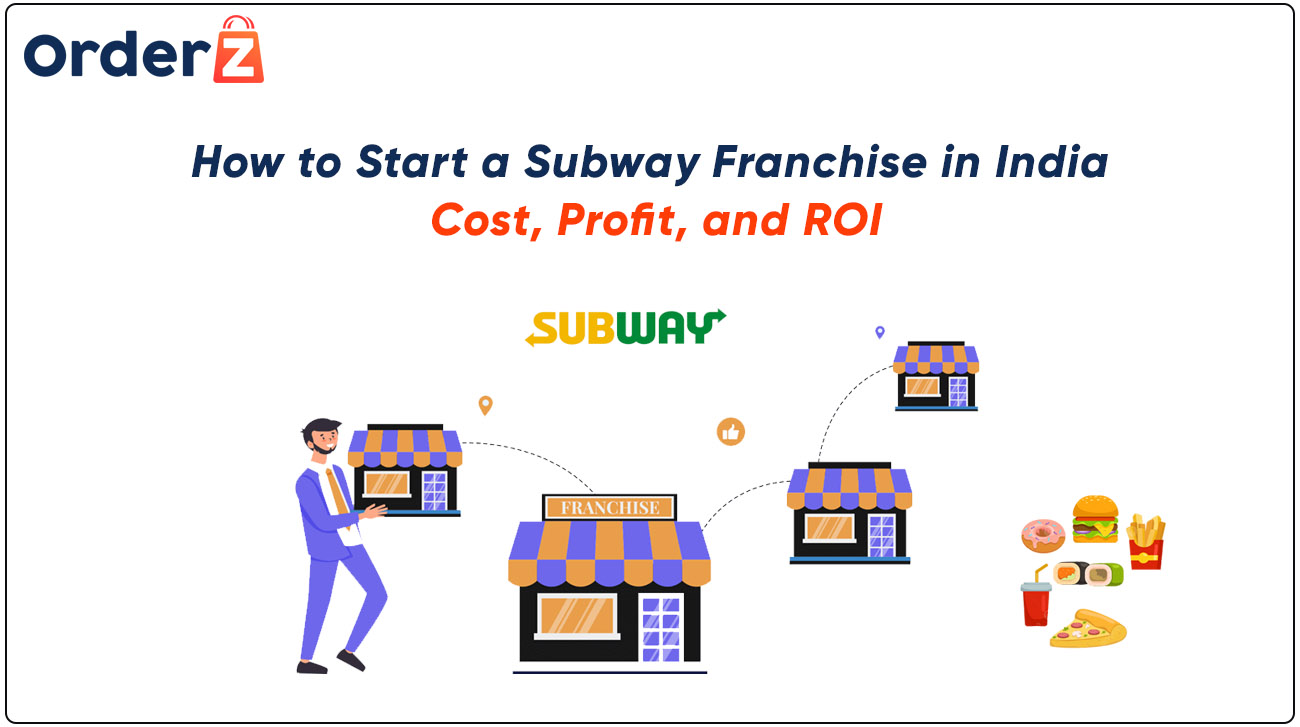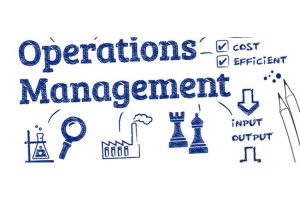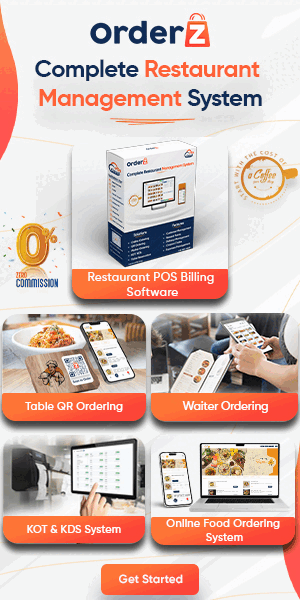Subway is one of the most popular and successful fast-food chains in the world, with over 40,000 outlets in more than 100 countries. It offers a variety of sandwiches, salads, wraps, and other healthy options that cater to different tastes and preferences. Also known for its fresh and customizable menu, as well as its social responsibility and environmental sustainability initiatives.
If you are looking for a lucrative and rewarding business opportunity in the food industry, you might want to consider becoming a Subway franchise. Subway has a proven and profitable franchise model that allows you to operate your own store under the guidance and support of the parent company. Subway also has a strong presence and reputation in India, with over 600 outlets across the country.
In this blog, we will guide you through the steps and factors involved in starting a Subway franchise in India.
Understanding Subway Franchise Model
Subway operates on a franchise model, which means that it licenses its brand name, products, systems, and processes to independent entrepreneurs who own and run their own stores. As a franchisee, you will have to pay an initial franchise fee and ongoing royalties to Subway, as well as follow their standards and guidelines. In return, you will get access to their training, marketing, supply chain, technology, and other resources that will help you run your business successfully.
Subway has two types of franchise models: traditional and non-traditional. A traditional franchise is a standalone store that operates in a high-traffic location such as a mall, street, or plaza. A non-traditional franchise is a store that operates within another establishment such as a gas station, hospital, airport, or college. The type of franchise you choose will depend on your budget, location, market demand, and availability.
Meeting Subway Franchise Requirements
To qualify for a Subway franchise in India, you need to meet some basic requirements:
- You must be at least 18 years old.
- You must have a net worth of at least Rs. 1 crore
- You must have a liquid capital of at least Rs. 25 lakhs
- You must have some business experience or background in the food industry.
- You must be willing to work full-time or hire a manager who can oversee the daily operations of your store.
- You must be able to comply with Subway’s standards and policies.
If you meet these requirements, you can fill out an online application form on Subway’s website. You will have to provide some personal and financial information, as well as details about your proposed location and market.
Once you submit your application, you will be contacted by a Subway representative who will review your application and conduct an interview with you. If you pass the interview stage, you will be invited to attend a Discovery Day at Subway’s regional office where you will learn more about the franchise opportunity and meet other franchisees.
Investment Costs
The total investment cost for starting a Subway franchise in India can vary depending on the type of store (traditional or non-traditional), size of store (ranging from 300 sq ft to 1500 sq ft), location (metro or non-metro), equipment (new or used), labor (number of employees), etc. However, based on some estimates from existing franchisees , the average investment cost can range from Rs. 50 lakhs to Rs. 1 crore.
The investment cost can be broken down into the following components:
- Franchise fee: This is a one-time fee that you pay to Subway to use their brand name and system. The franchise fee for a traditional store is Rs. 6.5 lakhs, while the franchise fee for a non-traditional store is Rs. 4.5 lakhs.
- Equipment: This includes the kitchen equipment, furniture, fixtures, signage, POS system, security system, etc. The equipment cost can vary depending on the size and type of store, but it can range from Rs. 15 lakhs to Rs. 25 lakhs.
- Leasehold improvements: This includes the renovation, construction, plumbing, electrical, painting, flooring, etc. of your store. The leasehold improvement cost can vary depending on the condition and size of your store, but it can range from Rs. 10 lakhs to Rs. 20 lakhs.
- Inventory: This includes the food ingredients, packaging materials, cleaning supplies, etc. that you need to stock your store. The inventory cost can vary depending on the size and type of store, but it can range from Rs. 2 lakhs to Rs. 4 lakhs.
- Working capital: This includes the cash that you need to cover the initial expenses such as rent, utilities, salaries, marketing, etc. The working capital cost can vary depending on the size and type of store, but it can range from Rs. 5 lakhs to Rs. 10 lakhs.
Financing Options
If you don’t have enough funds to start your Subway franchise, you can explore some financing options that are available for aspiring franchisees in India. Some of these options are:
- Subway’s own financing program: Subway offers a financing program for qualified franchisees who need assistance with the equipment and leasehold improvement costs. Subway will lend you up to 75% of these costs at an interest rate of 10% per annum for a period of five years.
- Bank loans: You can also apply for a bank loan from any of the major banks in India that offer loans for franchise businesses. You will have to submit your business plan, financial statements, collateral, and other documents to the bank and meet their eligibility criteria. The interest rate and repayment period will vary depending on the bank and your credit history.
- Government schemes: You can also avail some government schemes that are designed to promote entrepreneurship and small businesses in India. Some of these schemes are:
- Pradhan Mantri Mudra Yojana (PMMY): This is a scheme that provides loans up to Rs. 10 lakhs for micro and small enterprises without any collateral or guarantee.
- Stand-Up India Scheme: This is a scheme that provides loans ranging from Rs. 10 lakhs to Rs. 1 crore for women and SC/ST entrepreneurs who want to start or expand their businesses.
- Credit Guarantee Fund Trust for Micro and Small Enterprises (CGTMSE): This is a scheme that provides credit guarantee cover up to Rs. 2 crore for micro and small enterprises who are unable to provide collateral or third-party guarantee.
Franchise Agreement and Training
Once you secure the funds and finalize the location for your store, you will have to sign a franchise agreement with Subway that will outline the terms and conditions of your partnership. The franchise agreement will specify your rights and obligations as a franchisee, such as:
- The duration of the agreement (usually 20 years)
- The royalty fee (8% of gross sales)
- The advertising fee (4.5% of gross sales)
- The territory (usually exclusive within a radius of 1 km)
- The quality standards
- The termination clauses
- The dispute resolution mechanisms
After signing the franchise agreement, you will have to undergo a comprehensive training program that will prepare you for running your store successfully. The training program will consist of two parts:
- Online training: You will have to complete an online course called Subway University that will teach you about Subway’s history, vision, mission, values, products, systems, processes, policies, etc.
- In-store training: You will have to attend a two-week in-store training at a designated Subway outlet where you will learn about the practical aspects of operating a store such as food preparation, customer service, inventory management, hygiene, safety, etc.
Store Setup and Design
After completing the training program, you will have to set up and design your store according to Subway’s specifications and guidelines. You will have to follow Subway’s standard layout and décor that reflects their brand identity and image. You will also have to install Subway’s equipment and technology that will enable you to serve your customers efficiently and effectively.
the equipment and technology that you will need are:
- Sandwich unit: This is a refrigerated unit that holds the bread, meat, cheese, and vegetables that are used to make the sandwiches.
- Toaster oven: This is an oven that toasts the bread and melts the cheese for the sandwiches.
- Microwave oven: This is an oven that heats up the soups, sauces, and other items for the sandwiches.
- Bread proofer: This is a device that proves the dough for the bread before baking.
- Bread oven: This is an oven that bakes the bread for the sandwiches.
- Beverage dispenser: This is a device that dispenses the soft drinks, juices, water, and other beverages for the customers.
- Ice machine: This is a machine that produces ice for beverages and salads.
- Coffee machine: This is a machine that brews coffee for the customers.
- POS system: This is a system that records the orders, payments, and transactions of the customers.
- CCTV system: This is a system that monitors the security and safety of the store.
Operations and Management
Once your store is open and running, you will have to manage the daily operations and ensure the smooth functioning of your store. You will have to perform various tasks such as:
- Ordering and receiving supplies: You will have to order the food ingredients, packaging materials, cleaning supplies, etc. from Subway’s approved vendors and suppliers. You will also have to receive and inspect the deliveries and store them properly.
- Preparing and serving food: You will have to prepare the food according to Subway’s recipes and standards. You will also have to serve the food to the customers in a fast and friendly manner.
- Maintaining hygiene and safety: You will have to keep the store clean and sanitized at all times. You will also have to follow Subway’s hygiene and safety protocols and regulations.
- Managing staff: You will have to hire, train, motivate, supervise, and evaluate your staff. You will also have to assign them duties, schedules, salaries, incentives, etc.
- Handling customer service: You will have to deal with the customer queries, complaints, feedback, etc. in a polite and professional manner. You will also have to ensure customer satisfaction and loyalty.
- Accounting and reporting: You will have to keep track of the sales, expenses, profits, taxes, etc. of your store. You will also have to report them to Subway on a regular basis.
Profit Potential and ROI
The profit potential and ROI of your Subway franchise will depend on various factors such as your location, sales volume, expenses, competition, etc.
However, based on some estimates from existing franchisees , the average monthly sales of a Subway store in India can range from Rs. 10 lakhs to Rs. 15 lakhs. The average monthly expenses can range from Rs. 6 lakhs to Rs. 8 lakhs. The average monthly profit can range from Rs. 4 lakhs to Rs. 7 lakhs.
The ROI of your Subway franchise will depend on your initial investment cost and your monthly profit. However, based on some estimates from existing franchisees , the average payback period of a Subway franchise in India can range from 2 years to 3 years.
Ongoing Support and Growth
As a Subway franchise, you will not be alone in your journey. You will receive ongoing support and guidance from Subway’s corporate office or regional office that will help you grow your business and overcome any challenges.
Some of the support services that you will receive are:
- Training: You will receive regular training updates and refresher courses on Subway’s products, systems, processes, policies, etc.
- Marketing: You will receive marketing materials and tools that will help you promote your store and increase your sales.
- Supply chain: You will receive reliable and timely delivery of supplies from Subway’s approved vendors and suppliers.
- Technology: You will receive access to Subway’s technology and software that will help you manage your store and transactions efficiently and effectively.
- Quality control: You will receive regular audits and inspections from Subway’s quality control team that will ensure that your store meets Subway’s standards and expectations.
- Customer service: You will receive customer service support from Subway’s customer care team that will help you resolve any customer issues or complaints.
- Legal and regulatory: You will receive legal and regulatory advice and assistance from Subway’s legal and regulatory team that will help you comply with the laws and regulations of your area.
As a Subway franchise, you will also have the opportunity to grow your business and expand your network. You can open multiple stores in different locations or territories, depending on your performance, potential, and availability. You can also benefit from Subway’s global network and community of franchisees who can share their experiences, insights, and best practices with you.
Check out other franchises:
Conclusion
Starting a Subway franchise in India can be a rewarding and profitable venture if you have the passion, dedication, and resources to do so. Subway is a well-established and reputable brand that offers a proven and profitable franchise model that allows you to operate your own store under their guidance and support. Subway also has a strong presence and reputation in India, with a loyal and growing customer base.
However, starting a Subway franchise in India also involves some challenges and risks that you need to be aware of and prepared for. You need to do your market research, meet the franchise requirements, secure the funds, sign the franchise agreement, undergo the training program, set up and design your store, market and promote your store, manage the daily operations, handle the customer service, account and report your finances, receive the ongoing support, and grow your business.
If you are interested in starting a Subway franchise in India, you can visit their website or contact their regional office for more information and guidance. You can also read some testimonials or reviews from existing franchisees to get a better idea of what it is like to be a Subway franchise in India.
We hope this blog has given you some useful information and insights on how to start a Subway franchise in India. Thank you for reading!










